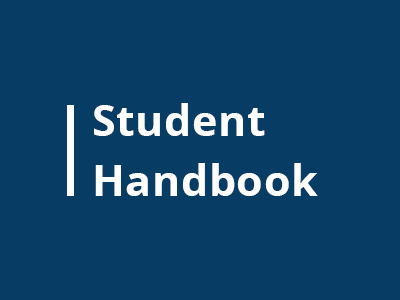Master Program
Overview
Magister Perencanaan Wilayah dan Kota (MPWK) or Master Programme in Urban and Regional Planning (MURP) is established in 1994. The establishment of MURP started off with the idea that planning is tremendously needed in the country and the nation’s development; the urge to take part in providing planning education that could disseminate planning ability and way of thinking to society that could affect future development’s direction decision; and the importance of human resources and planning knowledge to support development in planning studies.
Until 2017, the name of the degree programme was Magister Perencanaan Kota dan Daerah (Master Programme of City and Regional Planning). The name MURP corresponds with the terminology used in the planning community in Indonesia. The main course languages that are used is Indonesian and English.
MURP aims at how to provide problem-solving to current problems as well as better future focusing on spatial planning. Because of its comprehensiveness, MURP relates to other field of studies. The urban and regional planning discusses what can planners do to solve problems using spatial planning and engineering.
Graduate Program Profile and Program Outcome
Magister Perencanaan Wilayah dan Kota – MPWK/MURP (Master Program in Urban and Regional Planning) endeavor to produce graduates who are:
- Able to carry out key roles in various activities in the planning cycle as part of the professional responsibilities.
- Apply the scientific method in conducting scientific research and developing the knowledge.
- Competently execute urban and regional management functions, with extending beyond bureaucratic roles. They are primed for diverse opportunities in future regional and urban management.
- Graduates are at a professional level that equiped with substantial experience and skill and undertaking higher decision-making responsibilities. However, they need to continue pursuing further experience and enhancing their personal quality and skills.
- Trusted to fulfill their responsibilities due to their technical proficiency and integrity.
- Effectively communicate, negotiate, and collaborate with diverse communities and stakeholders using various appropriate approaches.
- Adaptable to various changes, resilient enough to be able to solve challenges and problems, and independently become lifelong learners.
- Able to carry out critical assesments of various issues and planning practices, as well as develop and apply creative and innovative ideas to provide solutions to urban and regional problems.
- Master and implement the entire spatial planning and development cycle from the process of formulating plans, implementing, monitoring and evaluating, to improving future plans in a visionary manner based on a scientific approach.
Additionally, the Program Learning Outcome of MURP UGM are:
- Attitude
- Able to uphold to human values based on Pancasila (Indonesian state philosophy) and belief in one almighty God.
- Able to demonstrate the ability to work independently or collaboratively with professionals from diverse fields in a manner that upholds integrity and adheres to academic ethics, professional ethics, community and state ethics, as well as relevant regulations and laws.
- Able to take positions and roles needed to respond regional and urban development issues based on a strong sense of nationalism, social awareness towards society and the environment, and a genuine commitment to the well-being of the state and nation.
- General Skill
- Able to develop ideas, formulate alternatives, and make decisions logically, critically, systematically, creatively, and innovatively according to actual conditions based on considerations from various perspectives.
- Able to communicate, negotiate, and collaborate effectively and efficiently with various stakeholders to convey ideas professionally and develop networks locally, nationally, and globally.
- Able to conduct contextual research and communicate the results for knowledge development and problem solving in the field of urban and regional planning, in accordance with scientific principles and academic ethics.
- Knowledge
- Mastering the paradigms, theories, concepts, methods, and supporting applications based on information technology in the field of urban and regional spatial planning and development.
- Mastering norms, standards, processes, and procedures in the cycle of urban and regional spatial planning and development.
- Specific Skill
- Able to formulate policy and planning for sustainable urban and regional development, as well as strategies for the implementation based on rational and comprehensive analysis of prevailing conditions, potentials, and challenges.
- Able to manage and coordinate formal and informal processes in making decision on urban and regional planning and development effective and systematically.
- Able to develop critical studies and innovative recommendations on planning systems, process, and methods based on accountable scientific arguments.
- Able to select and utilize supporting information technology systems within the planning field appropriately to process and communicate data that supports the practice of preparing, implementing, evaluating, and controlling plans.
Program Duration
Graduated student of this program will awards the degree title with Master of Urban and Regional Planning (M.URP.) since early 2018; previously Master of Engineering (M.Eng.) in the field of Urban and Regional Planning after an academic period of 24 months, comprised of 4 semesters (one semester equals 6 months) and a week-long matriculation (pre - program URP). In the first 2 semesters, lectures and studio will be conducted, while in the last 2 semester the students will write their thesis.
Curriculum
Our curriculum give wider opportunity for students to develop their specialization. The curriculum designed with flexible method for specialization for program organization based on the specialization from the student interest. The choices of specialization will be done when the matriculation and interview session for new students.
The course material encompasses two pillars: theory and analysis and practice. The first pillar will equip the participants of the program with cognitions of planning theory and methodology and substantive theories used in urban and regional planning. This pillar also gives the student capability to do research in planning field for their Thesis. The second pillar will give the program participants with quantitative and qualitative tools used for planning analysis, psychomotor analytical skills, and working knowledge of the social context of urban and regional planning politics in Indonesia, and intensive exercises to put into practice theories, tools and analytical skills to solve realistic planning problems in the field.




